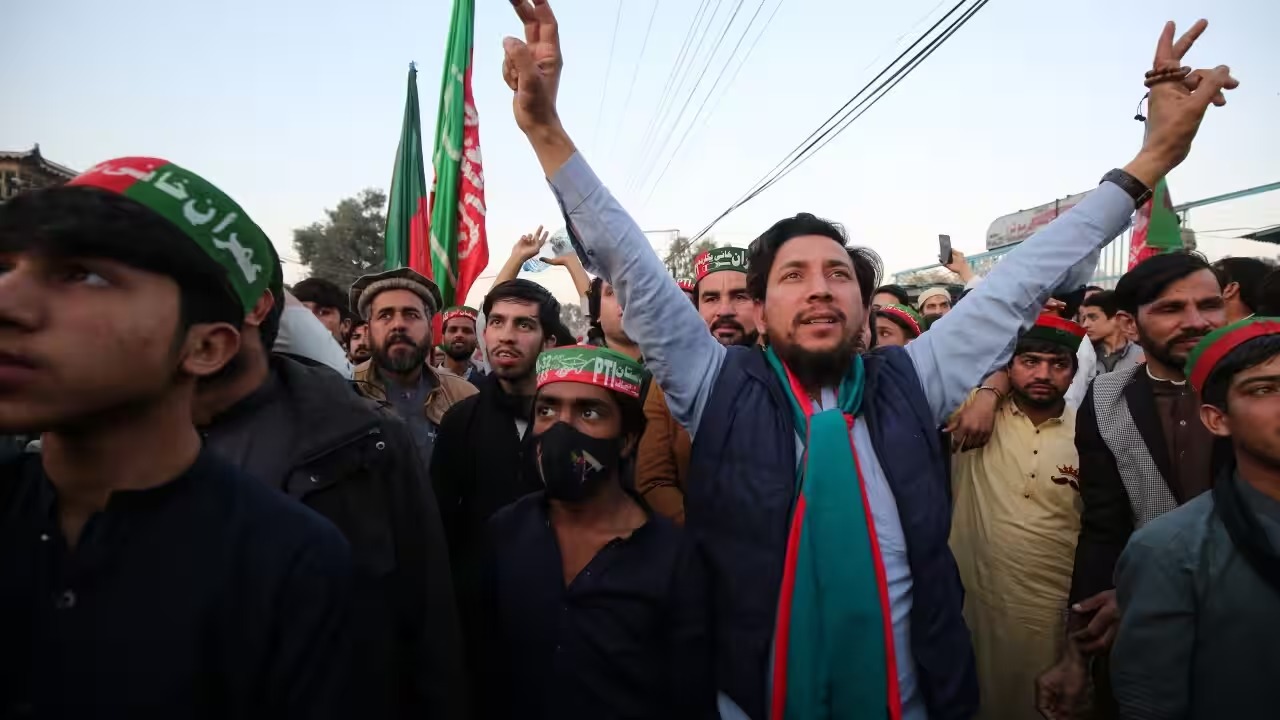The recent general elections in Pakistan have raised concerns from various nations, including the United States, the United Kingdom, and the European Union, over the alleged irregularities in the electoral process.
The delay in the announcement of results and uncertainty regarding the formation of the government have prompted calls for an investigation into activities such as fraud, arrest of activists, and interference.
According to the Pakistan election commission’s latest data, independent candidates, largely supported by Imran Khan’s Pakistan Tehreek-e-Insaf (PTI), secured the most seats – 98 out of 245.

Jubilation Over Pakistan Election Result (Credits: SBS)
Despite claims of victory from former Pakistani prime ministers Nawaz Sharif and Imran Khan, nations have refrained from congratulating any party or candidate.
The US State Department expressed concern about “undue restrictions” on freedom of expression and assembly during the elections. Democratic US Representatives Ro Khanna and Ilhan Omar went further, alleging interference by the Pakistani military in the electoral process and calling for a thorough investigation before recognizing a winner.
The UK’s foreign minister, David Cameron, raised serious concerns about the “fairness and lack of inclusivity” in the elections, while the European Union noted a “lack of a level playing field.”
The EU attributed this to the “inability of some political actors to contest the elections,” along with restrictions on freedom of assembly, expression, and internet access.
Earlier in the week, the UN human rights office condemned violence against political parties and candidates in Pakistan, expressing concern about the “pattern of harassment, arrests, and prolonged detentions” of leaders and supporters of Imran Khan’s party, PTI.
As per the election commission’s latest data, independent candidates, predominantly backed by PTI, secured the highest number of seats (98 out of 245).
The PTI loyalists’ seat count surpassed those of Nawaz Sharif’s Pakistan Muslim League (N) and Bilawal Bhutto-Zardari’s Pakistan People’s Party, who won 69 and 51 seats, respectively. A simple majority would require a political party to secure 133 seats.
Despite the conflicting claims of victory from both Khan and Sharif, the uncertainty prevails over which party will form the government. Sharif, acknowledging his party’s insufficient majority, invited allies to join a coalition government.
He expressed the willingness to work with other successful parties in the election to jointly address Pakistan’s challenges. The situation remains complex, leaving the political landscape in Pakistan uncertain.























